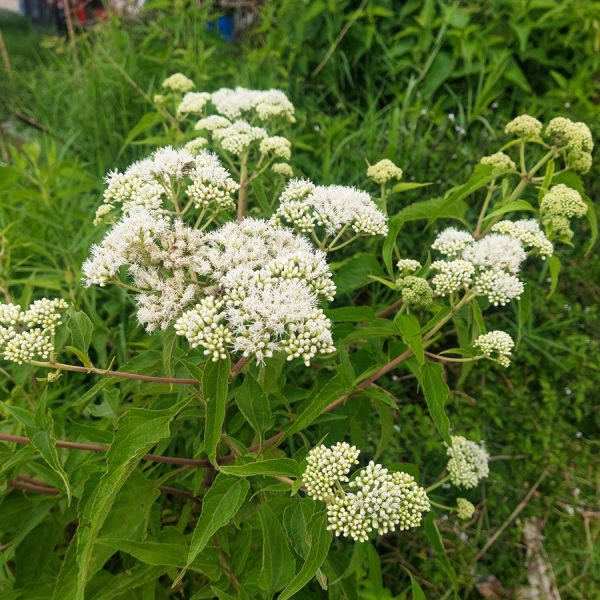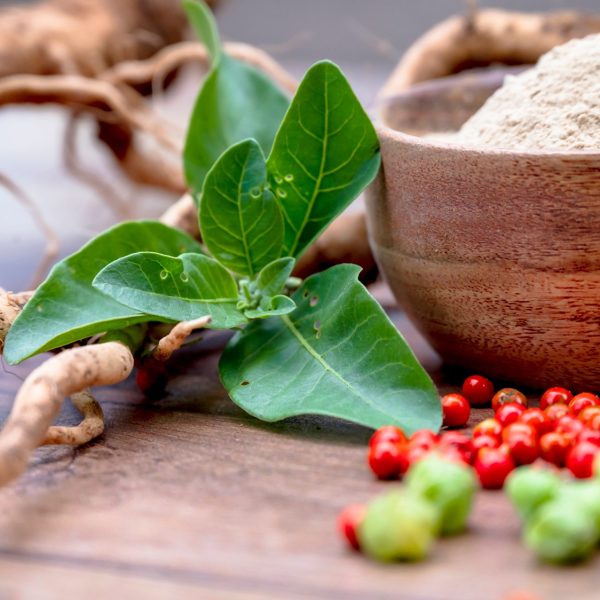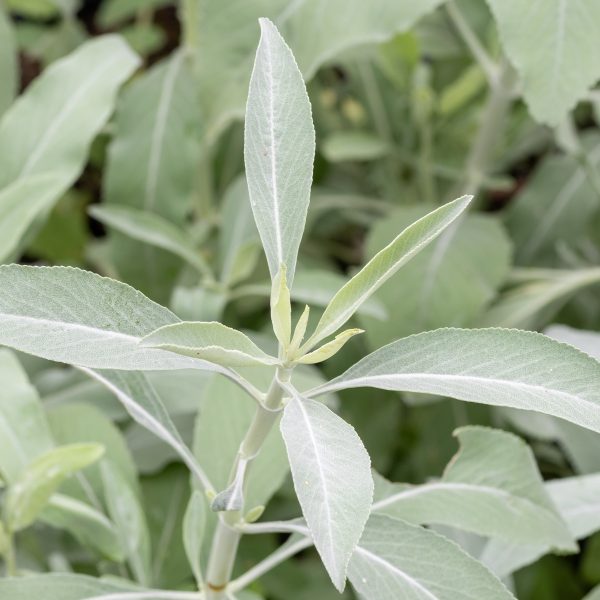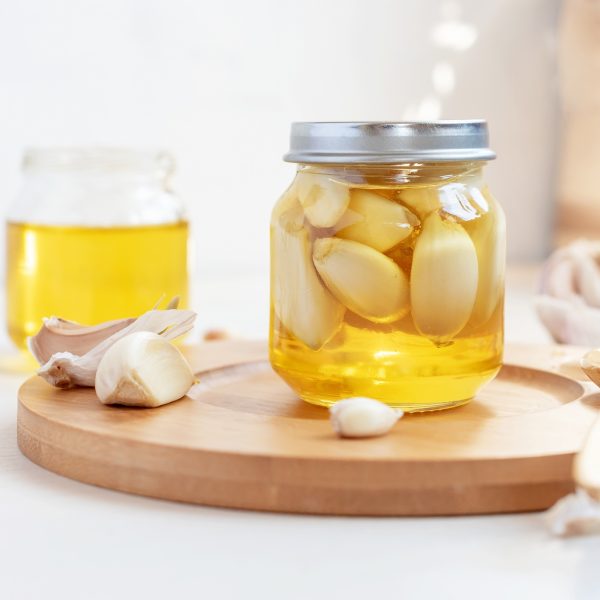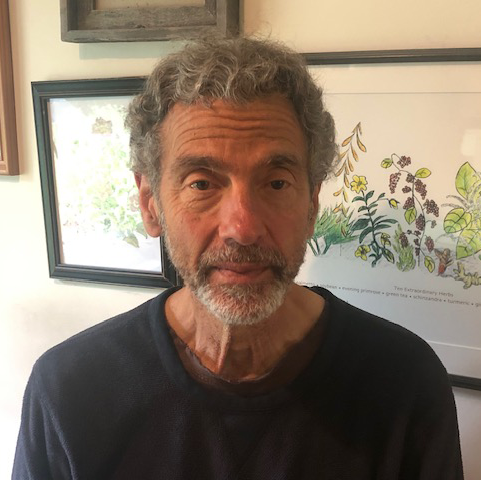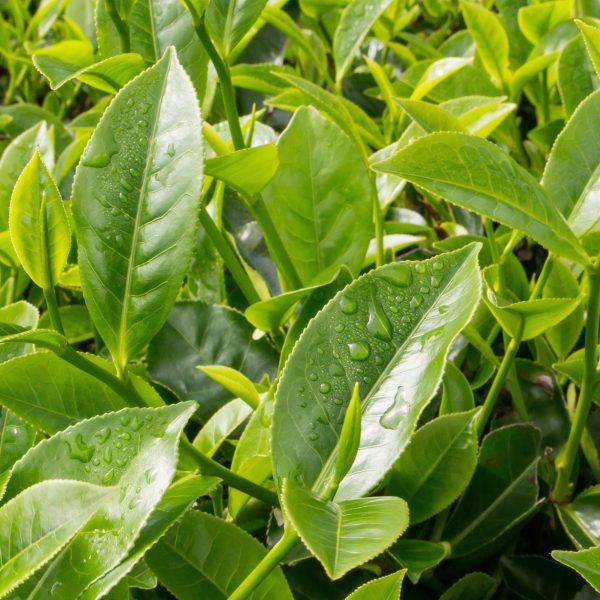What simple, affordable solutions are there to elevate the wellbeing of the American nation? Could daily kindness, humour and a cup of tea put health and care back into the system?

“Start by doing what’s necessary; then do what’s possible; and suddenly you are doing the impossible.” — St. Francis of Assisi
A recent Forbes article titled US healthcare is not a system: It’s a market, and it’s broken says it best.
“Spend 30 seconds perusing any comment section, and you’re likely to conclude that Americans can disagree on anything. While common ground seems to have nearly disappeared, there is one agreement that crosses gender, politics, race and religion — healthcare costs in the United States are absurd.”
Not only is the $4.5 trillion dollars America spends on healthcare mushrooming out of control — dramatically more than in any other industrialized country — but this is not translating to better public health. The United States ranks last asmong other high-income countries on key healthcare metrics like infant mortality and rates of chronic disease (1). Worst of all, we are 49th in the world for healthy life expectancy (2). In contrast, Japan consistently ranks in the top three; its citizens live a better quality of life and live eight years longer than we do. For every dollar America spends on health care, Japan spends less than 50 cents!
In the United States, 60% of US adults — about 133 million people — have at least one chronic disease, and 40% have two or more (3). Included and often unseen in this epidemic is the decline in mental health for which it is estimated that 55% of adults do not receive any treatment even when it is most needed. This lack of care costs the US economy over $300 billion every year due to productivity losses (4). From a cup-half-full perspective, measurable progress should not be hard to make even though we are facing a particularly chaotic and unstable time.
The healing power of simple things
“The journey of a thousand miles begins with one step.” — Lao Tzu
One step towards making America healthier is undoubtedly getting to the root of the chronic disease epidemic. Arguably, this is where the individual can begin to take immediate action and notice swiftest effect.
So where does one start? Suggestions might include whole food diet programs, more physical activity, yoga, meditation, and deep breathing — all reasonable and effective strategies. Yet,t for numerous reasons, many people find them too difficult to follow or too slow to make a difference.
There are three simple solutions that get to the root of much disease, which cost next to nothing and can go into action today. As incredible as it sounds, change can be as simple as choosing kindness, finding humour, and sipping a cup of tea.
Choosing kindness
“Love your neighbor as yourself.” — (Leviticus 19:18)

Why should we choose kindness?
When one feels a scarcity of resource (food, money, shelter) or that one’s livelihood or safety is being threatened by another, this naturally triggers fear and anger and puts us into the primal internal hormonal state known as the “fight or flight” mode. Heart rate and blood pressure increase, immune activity decreases. We experience enhanced mental focus, alertness, and energy for a quick response to danger, which obviously has its place. If we get stuck in this state, however, it wreaks havoc on the body, putting us at higher risk of infection and accelerating the aging process.
“Holding onto anger is like drinking poison and expecting the other person to die.” — Buddha
Why is choosing kindness so important?
“My command is this: Love each other as I have loved you.” — Jesus (John 15:12)
It is not a coincidence that being kind is the advice of all world religions. Science helps us understand why. Even a single act of kindness activates and delivers healing in a no-cost mix of pain-relieving endorphins, bonding oxytocin and uplifting serotonin. Remarkably, this mix is proven to not only protect your genes in as little as 30 days from the potentially ravaging effects of chronic stress but may help heal and restore them. It is hard to find anything in nature proven to rapidly promote better health and longevity more than simply being kind.
The simplest place to start
“Kindness is a mark of faith, and whoever is not kind has no faith.” — Muhammad
Before embarking on a weekly ritual or act of kindness, start by sending kindness to yourself while placing one hand on the heart and the other on the belly. Hard to believe, but science shows that even 20 seconds a day of this therapeutic touch, can make a measurable difference in your stress response (5). Once you make your self-connection, you will at least theoretically now be more available and of even greater benefit to others in need. This can all be easier said than done, thus the below resources are at your disposal.
- The force of kindness: Change your life with love and compassion by Sharon Salzberg
- The power of kindness by Piero Ferrucci (10th Anniversary Edition)
- Self-compassion break (audio meditation) by Chris Germer
Research has demonstrated that generosity and helping behavior is inherent in human nature and is observed in infants as young as eighteen months of age (6). One can only imagine if American culture cultivated these positive traits from an early age just how enlightened and caring a society we might have.
“Treat everyone with kindness and respect. Don’t let your emotions cloud your judgment.” — Krishna
Finding humour
“Laughter is an instant vacation.” — Milton Berle

Finding lightness, humour, or even comic relief in the darkest of times can feel next to impossible, but the effort to do so appears to have been present in the earliest recorded human societies. From ancient Greece to Native American culture, the life-changing impact of humour was appreciated and employed. Ancient Greek physicians prescribed a visit to a hall of comedians for their sick patients and Native American tribes revered their “sacred clowns” for healing both emotional and physical disease.
Even a single humorous encounter can alter whole-body chemistry and shift or change physical structure. From beneficial reductions in inflammation markers and blood sugar to elevations in pain-relieving brain opioids to relaxation of arterial stiffness, a light smile or joyful laugh can potentially shift the tide in a disease process (7). Even at the genetic level, science can detect the positive effects of humour (8).
“Laughter is the shortest distance between two people.” — Victor Borge
Did you ever notice how many more times a day a four-year-old can laugh vs. a 40-year-old in our culture? Perhaps as muscles atrophise without use, our mental capacity for humour wanes with the less we laugh. Why not consider as a longevity practice a daily ritual of finding humour?
“Always keep your sense of humour. That’s what I attribute my long life to. I think I’ll die laughing. That’s part of my program.” — Jeanne Calment (122+-year-old, the oldest seemingly verified person to ever live).
The simplest place to start
If 20 seconds of self-compassion can enhance our capacity for kindness, there is a version of this to try to expand our capacity for humour. Form a video library of your favorite “belly laugh” clips or start a humour book. Each night before you go to bed, see if you can find just one humorous moment in your day and then note it or better still, have a good laugh. You might be pleasantly surprised over time that your days become just a tad lighter, and if they don’t, research has shown that at least you will produce more melatonin and, with a little smile on your face, enjoy a deeper sleep (9).
“With the fearful strain that is on me night and day, if I did not laugh, I should die.” — Abraham Lincoln
A cup of tea
“Better to be deprived of food for three days, than tea for one.” — Ancient Chinese proverb
Whatever politics assail us, there is no question that soothing, deeply nutritive and longevity-promoting reinforcement can be found in the herbal kingdom. The ancient teachings of every culture are filled with reverence and counsel on how to connect with and utilize innumerable native herbal healing gifts. To single out one herb to lean on most in this unsettling time is a virtually impossible task. With that caveat, I turn to modern science for a little help and invite you to enjoy the herb Camellia sinensis, the tea bush, with green tea being widely considered the most medicinal variety.

Hundreds of clinical studies have been performed on the numerous health benefits of green tea. From pain relief, digestive support, and cancer protection to an uplift in mood, heart and respiratory health, green tea can act as a virtually supernatural shield, protecting the body and extending healthy life expectancy (10,11).
Simplifying all the research and thousands of years of tradition, green tea contains nature’s strongest polyphenols, a class of highly potent and protective compounds. The cellular pathways these compounds harmonize and heal contain abbreviations like NF-κB, MAPK, p53 and mTOR and the science reads almost like a science fiction novel, but it is really happening in real time, literally in minutes.
With all of the potential of green tea to shift these key metabolic markers, is it realistic to think that it could really help make a whole country healthier? A clue to answering this question takes us back to Japan, a stellar example of national health at reasonable costs. How does our tea consumption compare to that of Japan? The answer is remarkable and telling. For every cup of green tea drank in the United States, amazingly, at least ten are being consumed in Japan.
“All plants are our brothers and sisters. They talk to us and if we listen, we can hear them.” — Arapaho Proverb
It’s possible that it is not just the quantity of the tea that is contributing to the Japanese experience of more robust health, it may also be how they relate to the tea that is allowing the benefits to fully manifest. Green tea is so revered in Japan that for 12 centuries, exquisite ceremonies expressing gratitude to this herb have been conducted. Might that spirit of added gratitude for the healing impact of green tea also be contributing to its effects?
The case for tea’s ability to shift a nation’s health becomes even more convincing if one adds even a cursory review of the science of gratitude’s health benefits (12). Of all the expansive positive impacts on health of both green tea and gratitude, not surprisingly, is improvement in heart health. Ironically, if you live in the United States where heart disease is the number one killer, you are 3–5 times more likely to die of it than if you lived in Japan.
What the Japanese reverence for green tea invites is something quite profound that transcends the realms of plant polyphenols, chemistry and biology. Deep in the roots of the Japanese culture lies a recognition of green tea’s connection to the earth, the gifts that it offers us and particularly its ability to heal us.
The green tea ceremony commemorates and celebrates that tradition. It is becoming clearer that almost all of us in the United States suffer to some degree from a growing loss of connection with the earth itself. Hopefully, it is no longer a far-fetched idea that by drinking green tea while celebrating our earth connection, we can gain even deeper healing and more vibrant health.
The simplest place to start
The world of tea is at least as complex and elaborate as the world of coffee. Varieties, brewing methods, flavour and even associated health differences, can make choices dizzying. An option then is just to begin as simply as possible with a bag of green tea, certified organic if available. From here you can begin to enjoy exploring varieties from Sencha to Matcha.
From the health perspective, Matcha is usually the first choice. Then, try, even for a minute before sipping the tea, to reflect on where it is coming from and how it has the power to uplift you. You might just discover and experience why this celebratory practice has endured for more that 12 centuries in Japan and China.
From Walter Cronkite to healing a nation

During the 1960s and 1970s, the news commentator Walter Cronkite was often cited as “the most trusted man in America”. He declared in his final broadcast in 1981 that the US “health care system” isn’t healthy, isn’t caring and isn’t a system.
Since Cronkite’s sober assessment, healthcare costs have not only not stabilized but rather increased more than 15 times and tragically American health has declined while severely straining the national economy.
Is it a sheer fantasy that choosing kindness, finding humour, or drinking a cup of tea could possibly make any difference in this horrific trend?
It is hard to argue that we don’t need more doctors and clinics, better diagnostic capability, more equitable access to care, and more fair and lower prescription drug costs, but might the problem also be related to a deeper issue? An issue that specifically kindness and humour might better address, namely loneliness. It is now widely believed that we are currently in a “loneliness epidemic” with between 20–36% of adult Americans experiencing this deficit (13).
The detrimental physical effects of chronic loneliness are often equated to smoking 15 cigarettes a day — with studies showing 31% greater risk of developing dementia, 30% increase in risk of stroke or the development of coronary heart disease and a 26% increased risk for earlier death (13). We know that loneliness increases stress and increased stress is believed to be responsible for up to 80% of those costly primary care visits.
Given this understanding, doesn’t embracing kindness and its proven effectiveness in reducing loneliness make sense in the healthcare prescription? And what could make this prescription even easier to fill than a moment of comic relief and celebrating a cup of deeply healing tea?
To wellness with love!
References
- Blumenthal D, Schneider EC, Squires D, et al. Mirror, Mirror 2024: A Portrait of the Failing U.S. Health System, Comparing Performance in 10 Nations. The Commonwealth Fund; 2024. https://www.commonwealthfund.org/publications/fund-reports/2024/sep/mirror-mirror-2024 Accessed August 7, 2025.
- Institute for Health Metrics and Evaluation. Increases in US life expectancy forecasted to stall by 2050 as poorer health slows progress. IHME. https://www.healthdata.org/news-events/newsroom/news-releases/increases-us-life-expectancy-forecasted-stall-2050-poorer-health Accessed August 7, 2025.
- Buttorff C, Ruder T, Bauman M. Multiple Chronic Conditions in the United States. Rand Corp; 2017.
- Henry M. Expanding access to mental health supports would help the economy, according to new report. Ohio Capital Journal. Published January 10, 2025. https://ohiocapitaljournal.com/2025/01/10/expanding-access-to-mental-health-supports-would-help-the-economy-according-to-new-report/ Accessed August 7, 2025.
- Susman ES, Chen S, Kring AM, Harvey AG. Daily micropractice can augment single-session interventions: A randomized controlled trial of self-compassionate touch and examining their associations with habit formation in US college students. Behav Res Ther. 2024;175:104498. https://doi.org/10.1016/j.brat.2024.104498
- Wade M, Hoffmann TJ, Wigg K, Jenkins JM. Association between the oxytocin receptor (OXTR) gene and children’s social cognition at 18 months. Genes Brain Behav. 2014;13:603–610. https://onlinelibrary.wiley.com/doi/epdf/10.1111/gbb.12148
- Louie D, Brook K, Frates E. The laughter prescription: a tool for lifestyle medicine. Am J Lifestyle Med. 2016;10(4):262-267. https://doi.org/10.1177/1559827614550279
- Hayashi T, Tsujii S, Iburi T, et al. Laughter up-regulates the genes related to NK cell activity in diabetes. Biomed Res. 2007;28(6):281-285. https://doi.org/10.2220/biomedres.28.281
- Kimata H. Laughter elevates the levels of breast-milk melatonin. J Psychosom Res. 2007;62(6):699-702. https://doi.org/10.1016/j.jpsychores.2006.12.007
- Tian W, Zhang Y, Wang S, et al. Association of tea consumption with life expectancy in US adults. Nutr J. 2024;23:148. https://doi.org/10.1186/s12937-024-01054-9
- Xiang Y, Tang D, Wu J, et al. Tea consumption and attenuation of biological aging: a longitudinal analysis from two cohort studies. Lancet Reg Health West Pac. 2023;42:100955. https://doi.org/10.1016/j.lanwpc.2023.100955
- Wang X, Song C. The impact of gratitude interventions on patients with cardiovascular disease: a systematic review. Front Psychol. 2023;14:1243598. https://doi.org/10.3389/fpsyg.2023.1243598
- Batanova M, Weissbourd R, McIntyre J. Making Caring Common (2024). Loneliness in America: Just the Tip of the Iceberg? Harvard Graduate School of Education. 2024. https://mcc.gse.harvard.edu/reports/loneliness-in-america-2024 Accessed August 7, 2025.

